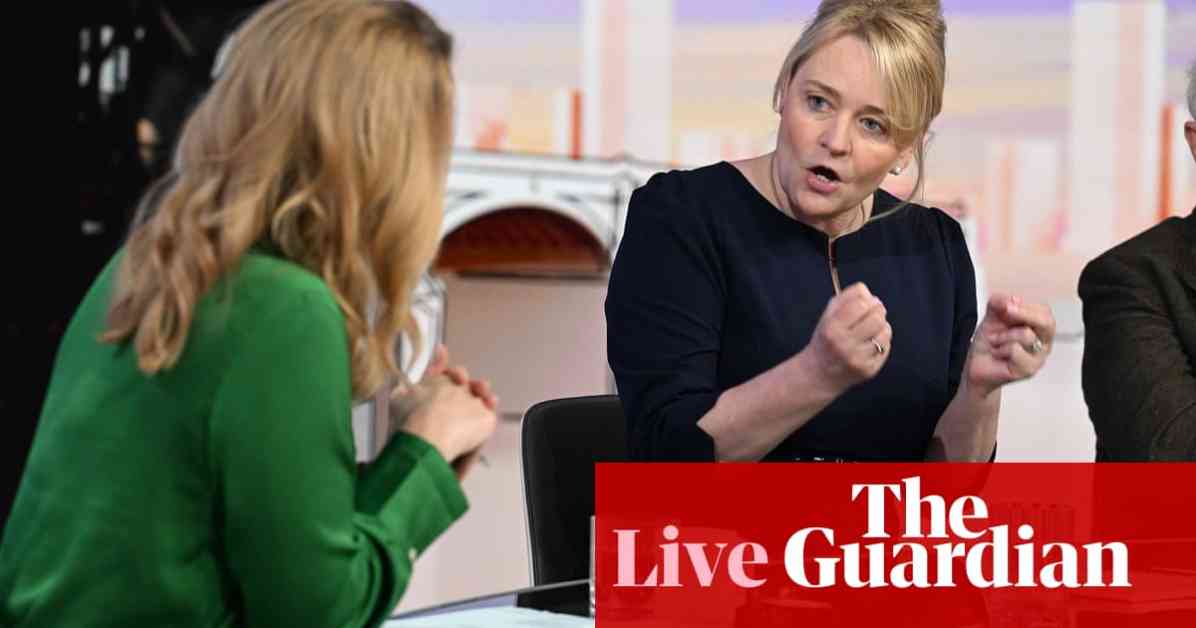Unite Leader Sharon Graham Criticizes Labour for Leading UK into Austerity 2.0
Sharon Graham, the general secretary of Unite, has spoken out against the Labour government, accusing them of steering the country towards what she calls “austerity mark 2”. In a recent interview with Sky’s Sunday Morning with Trevor Phillips, Graham expressed her concerns about the government’s approach, stating that the policies being discussed could negatively impact the most vulnerable in society.
Graham emphasized that workers, communities, and pensioners are all opposed to the idea of further austerity measures. She particularly highlighted her opposition to the government’s proposed cuts to winter fuel payments. In an article for the Observer, Graham suggested that taxing wealth more effectively could be a viable alternative to austerity.
In response to these criticisms, Keir Starmer, the leader of the Labour party, has rejected the notion that his government is leading the country towards austerity. He has emphasized the party’s commitment to protecting public services and driving positive change in the country.
Labour’s Plans for Urban Development: ‘Planning Passports’ to Accelerate Housebuilding
Labour has announced plans for what they are calling “planning passports” to facilitate easier construction of homes in urban areas. The party’s proposal includes a default assumption that planning applications will be approved in certain areas if they meet specific design and quality standards.
The aim of these planning passports is to accelerate urban densification by setting high standards for design and quality. Labour believes that denser cities can drive growth and prosperity by bringing people closer to work, improving transport infrastructure, and providing a broader talent pool for businesses.
Keir Starmer has expressed his support for these new planning passports, stating that they will “put rocket boosters under housebuilding” and help the party deliver on its promises of aspiration, security, and growth. However, critics have raised concerns about the potential impact of these standards on the quality of developments.
Labour Leaders Address Controversies Surrounding Donations
Deputy Prime Minister Angela Rayner has defended the right of politicians to accept donations but acknowledged the public’s concerns about transparency. She emphasized the importance of following the rules and ensuring that donations are declared to maintain transparency in political funding.
Education Secretary Bridget Phillipson has also faced scrutiny over donations she received to fund receptions linked to her birthday. Phillipson clarified that the events were work receptions focused on education and were properly declared. She emphasized that the donations were from a longstanding Labour supporter and not intended to influence policy.
Both Rayner and Phillipson have faced criticism from the media for their handling of donations, with accusations of breaching rules and lacking transparency. However, they have maintained that they have followed the regulations and have been transparent in their declarations.
Labour’s Vision for the Future: Delivering a Better Country
Keir Starmer has reiterated Labour’s commitment to protecting public services and driving positive change in the country. Despite the challenges inherited by the government, Starmer has emphasized the need to give people hope for a better future and a radically different and improved country.
In interviews ahead of the Labour conference, Starmer has highlighted key goals such as raising living standards, improving healthcare, promoting clean energy, enhancing opportunities for young people, and addressing crime. He has emphasized the importance of tough decisions to pave the way for a brighter future for the country.
As the conference unfolds in Liverpool, Labour faces the task of balancing tough economic decisions with delivering on its promises of positive change and hope for the future. The party’s agenda includes addressing critical issues, engaging with the public, and outlining a vision for a vastly improved and transformed country.
In conclusion, Labour’s leadership faces challenges and criticisms as they navigate the complexities of governance and policy-making. With a focus on transparency, accountability, and delivering on promises, the party seeks to build a better future for the UK and its citizens.












